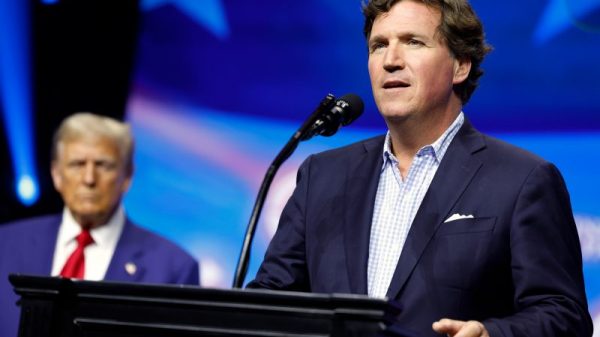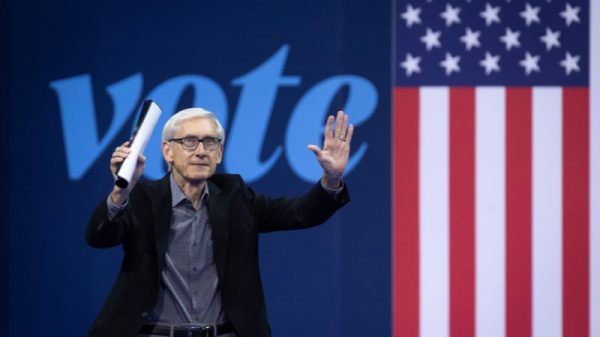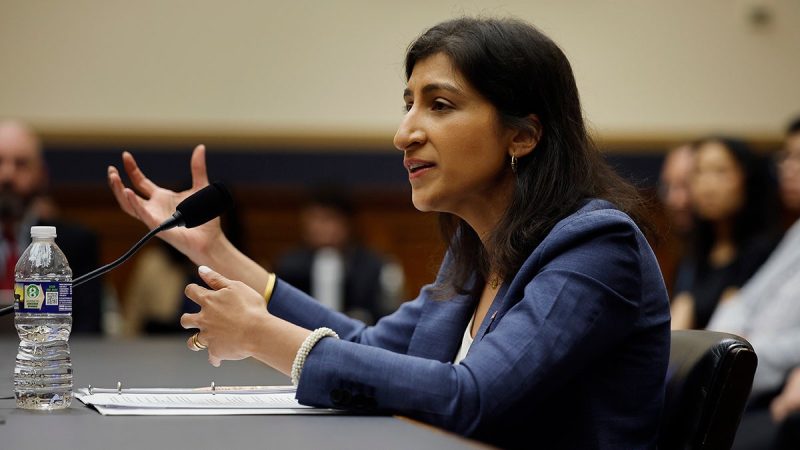The Senate Judiciary Committee soon will hold confirmation hearings for Gail Slater for assistant attorney general, antitrust division. Slater’s antitrust understanding is broad and deep; she previously worked in the Trump 45 administration, the Federal Trade Commission (FTC) and the private sector. She already has support from several senators and Attorney General Pam Bondi; she ought to be confirmed easily.
Slater, once confirmed, FTC Chairman Andrew Ferguson, and their respective agencies should return to following the Consumer Welfare Standard (‘CWS’), which has been the law of the land since the Supreme Court’s 1979 Reiter v. Sonotone opinion.
Reiter adopted CWS from Professor Robert Bork’s seminal 1978 book, ‘The Antitrust Paradox,’ which explained that competition leads companies to benefit consumers through, for example, lowering prices, growing output, improving customer service, expanding research and development, and increasing innovation.
CWS has proven to be a consistent, objective standard, measurable through economic analysis and empirical evidence. Consequently, because enforcers and courts could apply CWS fairly, it provided companies with predictability in policy, law and enforcement, which led to great innovation and growth.
Unfortunately, the Biden administration disregarded the law and sought to wreck CWS, with his staffers, including Federal Trade Commission. Chair Lina Khan, Assistant Attorney General Jonathan Kanter, Special Assistant to the President Tim Wu and Consumer Financial Protection Bureau Rohit Chopra, leading the way.
They are disciples of the discredited ‘Brandeisian Antitrust’ view, which is an amorphous standard that is subject to the whims of whichever antitrust enforcer is in office or the personal preferences of individual judges. Moreover, Congress never specified a maximum permissible market share or how big is too big for companies.
For example, under Brandeisian Antitrust, a big company with a market share as low as 4.5% faced antitrust enforcement risk. Accordingly, Brandeisian Antitrust proponents claim that consumers are better off with fewer big companies, more smaller companies, and paying higher prices.
The Trump administration will decide how to properly apply CWS and robustly enforce antitrust laws without adversely affecting U.S. innovation and global competitiveness, particularly because Chinese and other foreign-based companies compete neck and neck with U.S. companies (e.g., Chinese AI company DeepSeek). Worse, the E.U. imposed billions of euros in antitrust fines on U.S. tech companies (e.g., Apple, Alphabet), essentially transferring money from the employees and shareholders to E.U. bureaucrats.
Department of Justice divisions commonly temporarily pause or request extensions for their active cases when awaiting confirmation of an incoming administration’s assistant attorney general. However, the outgoing Biden DOJ acted contrarily.
For example, it abruptly filed an opposition motion in Visa, Inc. on the day before Trump’s inauguration, and on January 30, 2025, acting AAG Omeed Assef filed a new lawsuit to block Hewlett Packard’s proposed acquisition of Juniper Networks in the wireless local area network (WLAN) sector. Other examples of the Biden DOJ’s likely overreach include its RealPage, Inc. and Ticketmaster-Live Nation lawsuits.
In Visa, the Biden DOJ, perhaps deflecting blame from its administration’s bad policies that caused high bankcard fees, alleged that Visa’s volume discounts and incentive payments were not procompetitive investments in its network and partnerships, but instead were anticompetitive and blocked competitors from entering the debit transaction sector.
Visa is especially interesting because Dodd-Frank’s Durbin Amendment already mandates that debit cards enable at least two unaffiliated payment card networks, which ensures competition in transaction routing. It also caps interchange fees for Visa and MasterCard while exempting American Express and Discover, who therefore can charge merchants higher fees.
Reiter adopted CWS from Professor Robert Bork’s seminal 1978 book, ‘The Antitrust Paradox,’ which explained that competition leads companies to benefit consumers through, for example, lowering prices, growing output, improving customer service, expanding research and development, and increasing innovation.
In RealPage, the Biden DOJ, perhaps deflecting blame from its administration’s bad policies that caused skyrocketing rental prices, alleged that RealPage, Inc., which makes A.I. software that automates rental ‘comps’ to advise apartment landlords, price fixed and caused high rental prices.
In Ticketmaster-Live Nation, the Biden DOJ, perhaps taking political advantage of Ticketmaster’s high profile technological failures (e.g. its November 2022 website crash for Taylor Swift’s Eras Tour), alleged that Ticketmaster-Live Nation illegally monopolized the live event sector through exclusionary, retaliatory and other anticompetitive behavior.
Slater and the Trump DOJ should pause and review these and other Biden administration antitrust actions. Antitrust enforcement is designed to protect competition, not individual companies. It is not for pursuing social policies such as preventing social media censorship, raising employee wages, minimizing inequality or limiting companies’ political influence.
The Biden administration unwisely abandoned 46 years of CWS success and regressed to the previous failed Brandeisian view, thus creating uncertainty, stifling innovation, slowing economic growth and giving itself political and enforcement discretion.
The Trump administration announced on February 12 that it will no longer recognize any statutory or for cause removal protections for FTC, Consumer Product Safety Commission and National Labor Relations Board commissioners, giving the president more freedom to replace them.
Accordingly, the Trump administration can and should return to the Consumer Welfare Standard, reverse the Biden administration’s failures, and benefit consumers and the general economy.





























